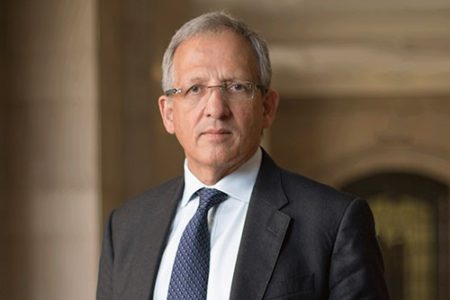CRYPTO AND THE BANK OF ENGLAND WARNING
- Speed Financial Solutions

- Oct 20, 2021
- 7 min read

If you find cryptocurrencies a little hard to get your head round, you might want to read on. Many people have dipped their toes into the world of crypto, but hopefully only with an amount that they can afford to lose completely. It’s now been around since 2009, but in that time few people have gained any real understanding of what’s going on in the mysterious world of Bitcoin, Ethereum, Litecoin, Cardano, Polkadot, Bitcoin Cash, Stellar, Chainlink, Binance Coin and Tether… confused yet? Read on!
With a Bitcoin wallet currently looking healthy, holders of cryptocurrency could easily slip into the mode of feeling rather happy with recent gains after the lull of the last few months, but there is so much more to consider with Crypto than may instantly come to mind when you are thinking of ‘investing’ … I write ‘investing’ but there is no real substance with Crypto, nothing tangible, no underlying assets that can be bought and sold, so on that basis I urge caution. My preference is to suggest to those considering buying cryptocurrency to view it as a gamble not an investment, particularly as there is no way of forecasting future price movements. So what are the issues? …

Online scams …
Banks are blocking payments to cryptocurrency trading platforms such as Binance and Kraken to protect customers following a dramatic spike in investment scam losses. Restrictions have been sparked by an increase in fraudsters posing as investment advisers to trick victims into sending money to crypto e-wallets where the money can disappear without a trace. Crypto has attracted scammers who take out malicious adverts with get-rich-quick claims on search engines and social media, sometimes with bogus celebrity endorsements. These ads direct you to fill in your contact details so that a fraudster can follow up with a telephone call posing as a crypto trader. In some cases, fraudsters pose as ‘support staff’ and convince victims to download remote access software so that they can control their devices and empty their crypto e-wallets.
Losses to investment scams were up 42% to £135.1m in 2020 and banks say they have seen a high level of crypto scams in recent months, particularly through social media sites. In June 2021, the Financial Conduct Authority (FCA) issued a formal warning about Binance Markets Ltd, banning it from operating in the UK. Taking their lead from the regulator, many UK banks have since announced that they will stop customers from making payments to crypto trading platforms. Lloyds, Virgin Money, HSBC, Barclays, Metro Bank, Santander and Tesco have all introduced bans on cryptocurrency debit and credit card payments following the FCA warning about Binance.
The crypto market is largely unregulated which means your money isn’t protected by the Financial Ombudsman Service or Financial Services Compensation Scheme if something goes wrong.
Bank of England Warning …
Sir Jon Cunliffe, who has specific responsibility within the Bank of England for financial stability, the supervision and oversight of financial market infrastructures and payment systems has warned that digital currencies such as bitcoin could trigger a financial meltdown unless governments step forward with tough regulations.
Likening the growth of cryptocurrencies to the spiralling value of US sub-prime mortgages before the 2008 financial crash, the deputy governor said there is a danger financial markets could be rocked in a few years by an event of similar magnitude.
Bitcoin and its nearest rival, Ethereum, tumbled in value earlier this year but have recovered ground to reach towards all-time highs. Cryptocurrency coins have grown in value by about 200% this year, from just under $800bn to $2.3tn, and have risen from $16bn five years ago. Thousands of competitors have sprung up, but the original cryptocurrency, Bitcoin, holds almost $1 trillion of that market share.
Cunliffe has played a central role in monitoring cryptocurrencies over recent years as an adviser to the G20’s financial stability board and the central banks’ overarching advisory body, the Geneva-based Bank of International Settlements.
Cunliffe said that while the finance industry was more robust than in 2008 and that governments should be wary of overreacting to financial innovations, there are reasons to be concerned about traders using digital currencies that could be worthless overnight.
“Of course, cryptocurrency of $2.3tn needs to be seen in the context of the $250tn global financial system. But as the financial crisis showed us, you don’t have to account for a large proportion of the financial sector to trigger financial stability problems – sub-prime was valued at about $1.2tn in 2008,” he said. Speculation in sub-prime mortgages in the US was driven by low-income households using mortgages with ultra-low interest rates. He compared a possible crypto crash with other financial meltdowns, and highlighted that the crypto market is now worth more than the sub-prime mortgage market in 2008 when it collapsed.

Cunliffe said there is evidence that speculators are beginning to borrow money to buy crypto assets, heightening the risk of a crash infecting the broader financial system. At the moment surveys suggested that spending on cryptocurrencies is backed with only about $40bn of borrowed funds. But there is evidence traders are increasingly speculating on the future value of digital currencies.
Cunliffe highlighted work already begun by regulators, such as the UK’s cross-regulator Cryptoassets Taskforce, but warned: “It needs to be pursued as a matter of urgency.” He further said, given the unbacked and volatile nature of cryptocurrencies, the implications of a major price correction posed a “more direct” threat to financial stability. “Such major corrections have been relatively frequent in the short lifespan of unbacked cryptoassets”, he said. The asset class is new, with the first cryptocurrency, bitcoin, created in 2009.
Enter Stablecoins … the asset backed cryptocurrency?

Stablecoins attempt to smooth out price fluctuations to attract users who may otherwise be cautious, as opposed to the wide swings observed in the prices of other popular cryptocurrencies like Bitcoin and Ethereum. One of the top 5 so called ‘stablecoins’, Tether, has a price tied directly to the price of the U.S. dollar. Launched in 2014, Tether was one of the first and most popular of a group of stablecoins. As of September 2021, Tether is one of the largest stablecoins, with a total market cap of $68.3 billion.
When a stablecoin is established, there is a reserve for the assets, which are held as collateral. But Bloomberg has recently said in a report “Exactly how Tether is backed, or if it’s truly backed at all, has always been a mystery,”.
“There are now 69 billion Tethers in circulation…That means the company supposedly holds a corresponding $69 billion USD in real money to back the coins—an amount that would make it one of the 50 largest banks in the U.S., if it were a U.S. bank.” Despite this damning Bloomberg report, the company backing the cryptocurrency is still refusing to disclose where its money reserves are kept, adding further to the mystery and lack of transparency with Crypto!
This week we’ve seen the launch of the world’s first Bitcoin Exchange Traded Fund (ETF) by ProShares. Specifically, the fund allows investors to bet on gains in the future price of bitcoin. Rather than holding actual Bitcoin, the fund invests in Bitcoin “futures” – essentially betting on the future price of the currency. That means it’s likely to lag the performance of Bitcoin-proper. Trading in futures also adds cost, so investors who choose the ETF over exchanges to gain bitcoin exposure are likely to end up paying more for worse performance!
The fund is not available in the UK. The Financial Conduct Authority (FCA) continues to block funds that have exposure to cryptocurrencies, citing often repeated concerns about the asset’s volatility, but US regulators have given it the nod because the fund tracks Bitcoin futures rather than the asset itself.
If you are wondering how to make the most of your savings without being caught out by a ‘get-rich-quick’ scheme, talk to us. We can assess what you have in place and help you keep ahead of inflation. Whether you’re looking for income or investment growth, we have a number of options available that could be exactly what you’re looking for.
At Speed Financial Solutions, our focus is to ensure that our clients are able to enjoy life knowing that they are set up in the most tax efficient way for their particular circumstances. If you are considering alternatives to leaving money sat on deposit please contact admin@speedfinancialsolutions.com
Speed Financial Solutions are a highly qualified financial services provider looking after clients throughout Spain and the UK. We provide a discreet and comprehensive service to individuals, and our service is tailored to suit your needs taking advantage of tactical opportunities as they arise in respect of your pension planning. We seek innovative solutions for our clients and employ our skills, based on many years of experience, to apply tax legislation to your advantage. Our relationships are built on trust and mutual respect. We are ready to answer your questions, giving you the confidence you want when dealing with a sensitive issue such as discussing your pensions, investments and savings.
Our Principal, Andrea Speed, is a qualified Discretionary Investment Manager specialising in Investment and Risk, Taxation and Trusts, and a qualified Pension Specialist. Andrea is also a Fellow of the Chartered Insurance Institute (CII), which is the world’s largest professional body for insurance and financial services in the world.
Fellowship is the highest qualification awarded by the CII (Level 7) and is universally regarded as the premier qualification. It is a major achievement in the financial industry and demonstrates the acquisition of skills and knowledge at the highest of levels. Along with a Fellowship, Andrea is a CII Chartered Financial Planner.
Please take a look at our website – www.speedfinancialsolutions.com
For further information contact us on Tel 951 315 271 or 951 318 529
We are happy to discuss your own situation in more detail. One of our advisers would be pleased to spend some time with you either in your home or at our office to review your current savings, investments and pensions, so do call to make an appointment. Our Financial Review is completely free of charge and without obligation. Follow us on Facebook for regular updates.
The contents published are not recommendations or decision aids for your investment decisions and they do not constitute any type of advice. We are not tax advisers and independent tax advice should always be sought.
Andrea J Speed FPFS (DM), M.A.
Principal, Fellow and Chartered Financial Planner
Speed Financial Solutions
21 October 2021









Comments